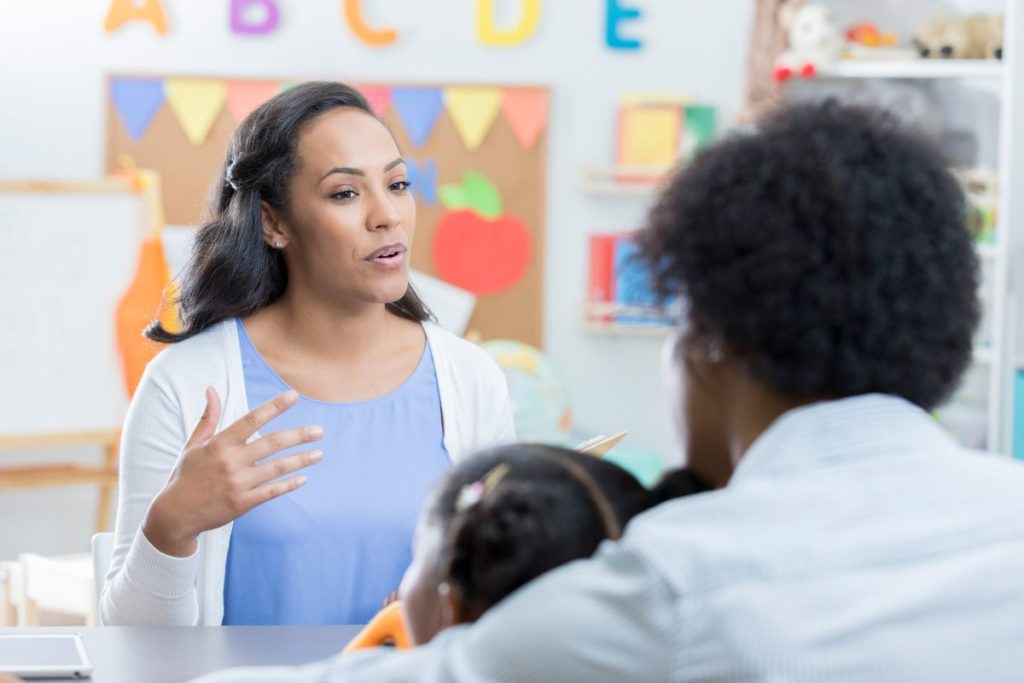
As parents and educators become aware of the impact school partnerships can have on education, there is an ever-growing need to develop effective parent-teacher relationships in high school classrooms. Establishing an open and collaborative dialogue between teachers and families increases student engagement and provides more holistic insight into the education process. By implementing these partnership strategies in your practice, you will be better equipped to successfully foster a learning environment that yields maximum academic results for every learner. Get ready as I, Ethan Krampitz, unlock new possibilities in your classroom as we dive into six key tips for success.
Establish Open Communication
Effective education depends on clear communication between parents and teachers. Encouraging parents to participate actively in their child’s education and providing teachers valuable feedback. By establishing open communication, parents and teachers can work together to identify and address any challenges or concerns that may arise throughout the school year. Whether through regular meetings, email updates, or other forms of communication, parents and teachers can collaborate to ensure that each child receives the best possible education. Let’s embrace the power of open communication to help our students reach their full potential.
Understand Parents’ Perspectives
As educators, we must recognize that each of our students has unique circumstances. One key factor that often plays a significant role in their academic success is their family life. By understanding the varying dynamics in each student’s home, teachers can better serve and support them in achieving their goals. It’s crucial to make an effort to listen and learn from parents about their particular challenges and needs. This kind of understanding builds trust and can help open dialogue between teachers and families, ultimately leading to stronger student relationships and academic success.
Educate Parents on School Policies
As a parent, it cannot be easy to keep up with the ever-changing landscape of school policies and expectations. With constantly evolving teaching methods and curricula, staying informed on how these changes may affect your child’s education is important. Schools often have unique rules and regulations, and parents must be familiar with them to support their child’s success. By educating yourself on these policies, you can better navigate the school system and help your child thrive academically. So take the time to familiarize yourself with your school’s expectations and requirements – your child will thank you!
Develop Mutual Goals for Student Success
Working together to develop mutual goals is essential in ensuring student success. When teachers and parents collaborate, they can combine their knowledge and experiences to create a tailored plan for each student. By focusing on collaborative problem-solving, teachers can take the time to listen to parents’ concerns and share their insights on what strategies have worked in the past. This approach can help establish open lines of communication and create a sense of teamwork between teachers and parents as they work towards a common goal: to help their child succeed. Through these collaborative efforts, all parties involved can make informed decisions and establish a supportive environment where students are set up for success.
Emphasize Respectful Interaction
Respectful interaction is the cornerstone of any successful community, especially in the classroom. We educators must always model positive communication practices, whether engaging with our students, colleagues, or parents. Encouraging students to respect one another’s differences and perspectives is vital to learning, and teachers are responsible for leading by example. By fostering an environment of kindness and civility in the classroom, we can create a safe and supportive space where students feel empowered to express themselves freely and learn from one another. So, let us lead by example and model respectful interaction so our students can grow and thrive in an environment that promotes positivity and kindness.
Utilize Technology for Parent Involvement
As we progress in technological advancements, it’s only natural to use these tools to improve communication between parents and teachers. Online parent-teacher conferences allow for more flexibility in scheduling, eliminating the need for parents to take time off from work or travel long distances. A shared online workspace lets both parties stay current on a student’s progress, homework assignments, and upcoming events. Using technology for parent involvement, we can bridge the gap between home and school, fostering a supportive and collaborative environment for our children’s education.
Final Thoughts
As we’ve seen, the best teaching practices involve creating a strong relationship between parents and teachers. Establishing open communication, understanding parent’s perspectives, educating parents on school policies, developing mutual goals for success, emphasizing respect in all interactions, and using technology to remain connected can create the type of bond that empowers both teachers and parents to work together in the best interests of each student. Ultimately, providing students with secure teacher-parent relationships now will result in stronger educational foundations that will benefit them as they move forward throughout their lives.